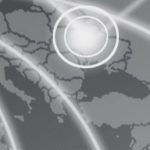“The huge government investment still does not translate into results”
- 20 July 2015
- Articles
We interviewed Dr. Eduardo Charreau, president of the IBYME Foundation and twice Jury of the Clarke, Modet & Cº Argentina Award to science journalism
From your vast experience and your role as a jury of the Clarke, Modet & Co. Awards, what would you say it is the present state of science and innovation in Argentina?
Undoubtedly, the picture is very broad. There are many people doing science and technological development, organized, with measurable results, and they deserve disclosure; and there are those more inclined to do little things, or copies of what is already known in other parts of the world. As regards innovation in the country, in general it cannot be considered something spectacular. Notwithstanding in the last years there has been a strong government incentive in this direction, opening possibilities with different subsides or strategies to promote these activities, when analyzing, for example, the number of patents we see that we are behind. Anyway, argentine science and innovation are still behind.
Is it possible that the number of patents does not reflect the whole reality?
It is true that there is a gap in time due to the delay to be granted a patent, but still, having some access to what is being invested in various projects to promote innovation, and the results obtained, I dare to say that they are not being entirely successful. Earnings are still small. That is perhaps, from my point of view, the biggest concern. The effort being made in science and technology is truly remarkable, especially in innovation and development over basic sciences. And I’m not saying this is wrong; but I would like to see more results, considering the general situation, of course. As has almost always been the case, there are groups that have really made very significant developments.
What are your medium-term prospects?
Anyway in my opinion this is a ball spinning that needs time to grow and consolidate. We need to generate initiatives from the scientific community, the government and the private sector mainly, because development of science and technology must be a joint effort, and I think that is being achieved. We need a little more time on the matter; fruits of science are not harvested in a short period of time.
You mentioned the private sector, how does this dynamic operate?
Unfortunately, there exists a large bump. I think we are still at 0.6% of GDP for Science and Technology, when we should be at this time above 1 or 1.5%. But out of this percentage, I would say virtually 80% is provided by the government. So it would be necessary that the private sector provides at least 40% to the total amount for Science and Technology; there is the future of all this. When those numbers are met, as in most of developed countries, not to say 50%, only then the threshold for true development is overcome.
And what is left for that to happen?
Beyond the government efforts there are other dimensions as to economy and politics of the country that affect the private sector. Until everything starts to move more or less in a unified manner, it will be a little difficult.
What role do science journalists and the media play in this entire framework?
Given the increasing complexity of science, certainly it becomes a must the social appropriation of knowledge, otherwise science loses some of its potential and any country project is impoverished. Society would lose the opportunity to be main character of collective knowledge. This is the reason why I think Clarke, Modet & Co. contest is so recognized by all who are somehow involved in the development of science in Argentina.
In the success of scientific development, science journalism plays a key role, I have experienced this as chairman of the CONICET. One thing is to ask for funding for a project that has been analyzed by a journalist, explained, understood, and then you can go to ask for money being legislators aware of the project; and a different thing is to go without that support, in the dark, it’s totally different. And this has changed a lot in the last ten or fifteen years; it has been immensely professionalized, and at present we have outstanding science journalists.
Eduardo Charreau holds a PhD in Chemistry. He started as a researcher under the direction of Bernardo Houssay and he is known for his works on molecular endocrinology. He was a Professor of Harvard University and the School of Exact and Natural Sciences of the University of Buenos Aires. Among his main institutional activities, he served as Director of the Instituto de Biología y Medicina Experimental (IBYME), y he was a chairman of the National Academy of Exact Sciences, Physics and Natural Sciences and the CONICET. Author of over 200 publications, received numerous international awards for his work.








